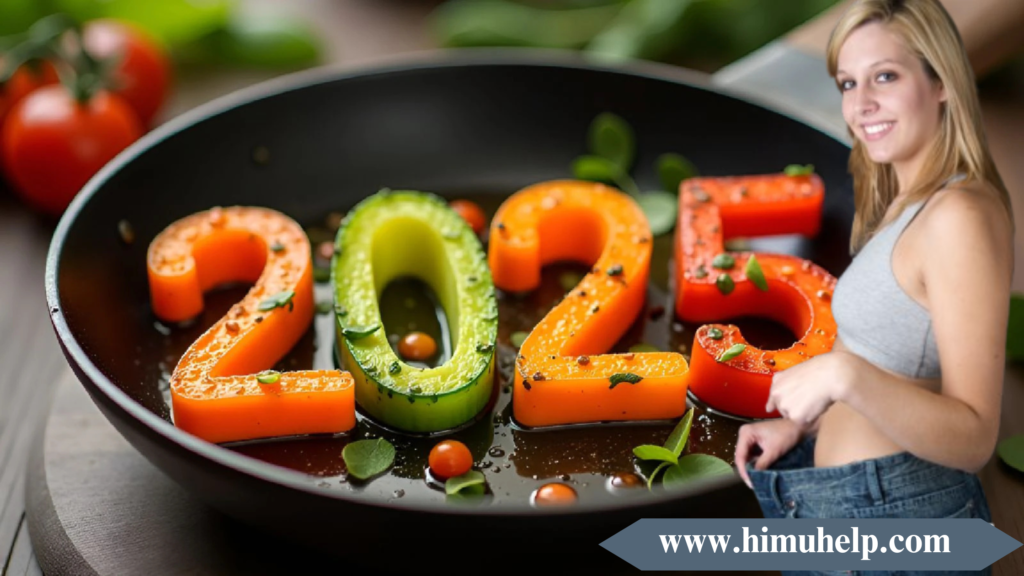
Weight loss isn’t just about shedding pounds; it’s about maintaining a healthier lifestyle for years to come. Achieving this requires understanding the importance of long-term weight loss. A sustainable approach ensures physical well-being and mental and emotional balance. However, the road to maintaining weight loss comes with challenges. Unsustainable diets, fluctuating motivation, and unrealistic goals often derail progress. This article aims to provide a comprehensive guide on the best diets for long-term weight loss in 2025, focusing on effective and practical strategies for diverse lifestyles.
Characteristics of Effective Long-Term Diets
Sustainability Over Time
The cornerstone of an effective diet is sustainability. Crash diets may promise quick results, but they often lead to rebound weight gain. Long-term success lies in adopting eating habits that can seamlessly fit into daily routines and become a natural part of life.
Balanced Nutrition
A diet rich in balanced nutrients supports overall health and weight management. Essential proteins, carbohydrates, healthy fats, and a variety of vitamins and minerals are crucial to maintaining energy and preventing deficiencies.
Personalization and Flexibility
Every individual has unique needs and preferences. A diet that accommodates personal tastes and allows for occasional indulgences is more likely to succeed in the long run.
Inclusion of Regular Physical Activity
Pairing a diet with consistent physical activity enhances weight loss efforts. Exercise helps maintain muscle mass and boosts metabolism, complementing dietary changes.
Top Diets for Long-Term Weight Loss in 2025
The Mediterranean Diet
The Mediterranean Diet continues to top the charts for effective weight management. It emphasizes whole, minimally processed foods like fruits, vegetables, whole grains, and healthy fats such as olive oil and nuts.
- Overview and Benefits: This diet promotes heart health, reduces inflammation, and supports gradual, sustainable weight loss.
- Foods Included: Key foods include lean proteins (like fish and poultry), legumes, and a variety of colorful fruits and vegetables.
- Why It’s Effective: Its focus on nutrient-dense foods and moderation makes it easy to sustain over time.
The DASH Diet
Designed to combat high blood pressure, the DASH (Dietary Approaches to Stop Hypertension) diet is another excellent choice for weight loss.
- Understanding the DASH Approach: This diet prioritizes foods rich in potassium, calcium, and magnesium while limiting sodium.
- Health Benefits: Beyond weight loss, it lowers blood pressure and improves overall cardiovascular health.
- Weight Loss Advantages: By encouraging portion control and nutrient-rich foods, it supports a healthy calorie deficit.
Plant-Based Diets
Plant-based eating, including vegan, vegetarian, and flexitarian diets, offers versatile options for weight management.
- Types of Plant-Based Diets: These vary in strictness, from entirely plant-based (vegan) to more flexible approaches (flexitarian).
- Role in Weight Management: These diets are naturally lower in calories and higher in fiber, promoting satiety and healthy digestion.
- Nutritional Considerations: Ensuring adequate protein and vitamin intake is crucial for those reducing or eliminating animal products.
Low-Carb Diets
Low-carb diets like Keto and Atkins focus on reducing carbohydrate intake to promote fat burning.
- Variations: These diets range from extremely low-carb (Keto) to more moderate approaches (Atkins).
- Impact on Metabolism: They shift the body into a fat-burning state called ketosis.
- Pros and Cons: While effective initially, they require careful planning to maintain nutritional balance and sustainability.
Intermittent Fasting
Intermittent fasting alternates periods of eating and fasting, with methods like 16/8 (16 hours fasting, 8 hours eating) gaining popularity.
- Different Methods: Various schedules allow for flexibility based on individual preferences.
- How It Aids Weight Loss: Fasting periods naturally reduce calorie intake and improve insulin sensitivity.
- Sustainability Challenges: Adjusting to fasting windows can be difficult, and there’s a risk of overeating during eating periods.
The Volumetrics Diet
The volumetrics diet prioritizes foods that are low in calories but high in volume, like fruits, vegetables, and soups.
- Focus on Low-Calorie, High-Volume Foods: This approach helps you feel full without consuming excessive calories.
- Benefits for Satiety and Weight Control: Focusing on satiety reduces the likelihood of overeating.
- Sample Meals: Breakfast could include oatmeal with fresh berries, while dinner might feature vegetable soup and grilled chicken.
How to Choose the Best Diet for You
Assessing Your Personal Needs
Selecting the right diet involves evaluating your daily routine, food preferences, and any medical conditions that may affect dietary choices.
Consulting a Nutrition Expert
Professional guidance ensures a balanced approach tailored to your specific needs. A qualified dietitian can provide personalized advice and strategies to overcome obstacles.
Tips for Sticking to Your Diet
Setting Realistic Goals
Small, achievable goals build momentum and boost confidence. Monitoring progress regularly helps stay on track.
Building a Support System
Having friends, family, or a community to share your journey with provides encouragement and accountability.
Staying Flexible
Adapting your approach as needed ensures that temporary setbacks don’t derail long-term progress.
Conclusion
Long-term weight loss requires finding a sustainable and enjoyable approach. By exploring diets like the Mediterranean, DASH, and plant-based options, you can discover what works best for you. Remember, consistency and balance are key to achieving lasting results.
How to Stay on Track With Your Diet During Holidays
FAQs
1. What is the best diet for weight loss?
The best diet is one that aligns with your preferences and is sustainable, like the Mediterranean or DASH diet.
2. Can I lose weight without exercise?
Yes, but combining a healthy diet with physical activity enhances results and supports overall health.
3. How do I stay motivated on a diet?
Set achievable goals, track your progress, and celebrate small milestones to maintain motivation.
4. Are cheat meals okay in a long-term diet?
Yes, occasional indulgences can prevent feelings of deprivation and support long-term adherence.
5. How quickly can I expect results from these diets?
Sustainable weight loss typically occurs at a rate of 1-2 pounds per week.